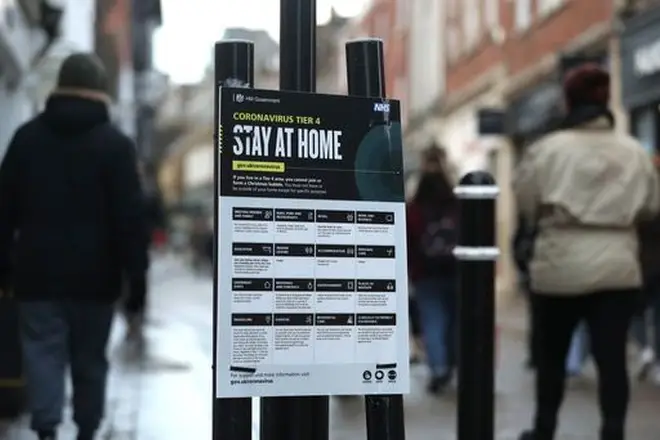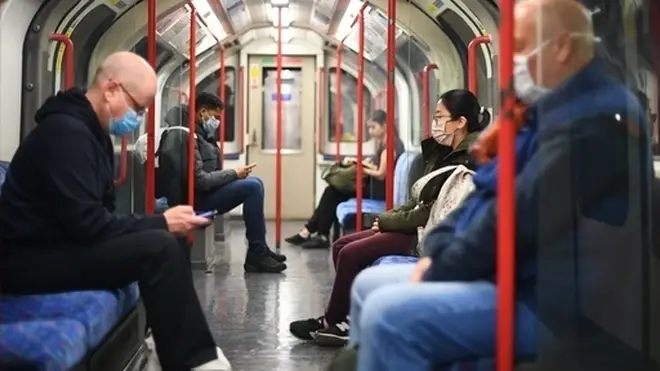
Nick Abbot 10pm - 1am
13 April 2021, 19:37

Experts have criticised western governments for using "strong-arm" lockdowns, and instead suggested community level health services should be used to guard against Covid-19 infections.
Dr David Nabarro, World Health Organisation (WHO) special envoy on Covid-19 said: "If it's all done through force, through restrictions, through instructions and through fines, it's much harder," when speaking at a Chatham House international affairs think tank webinar on Tuesday.
Dr Nabarro noted the importance "of good quality" public health with "excellent and well organised behaviour of people" who know how to stop the virus from spreading.
He added that he thought had the basics of community-based public health been applied in government responses in western Europe then it would have been easier to stop the virus from developing to "explosive" outbreaks.
He said: "It would've been much easier to avoid these incredibly damaging lockdowns that have such a nasty impact on so many aspects of human existence."

Johnson says no need to deviate from roadmap despite inevitable deaths
This comes as Boris Johnson said a reduction in infections has not been achieved by the vaccination programme, but by the lockdown measures.
The Prime Minister warned that although the numbers of infections, hospital admissions and deaths are down, the reduction "has not been achieved by the vaccination programme" but rather the lockdown.
"Of course the vaccination programme has helped, but the bulk of the work in reducing the disease has been done by the lockdown," he said.
Mr Johnson insisted that "at the moment I can't see any reason for us to change the road map, to deviate from the targets that we have set ourselves", but he urged people to be cautious.

David Heymann, professor of infectious disease epidemiology at the London School of Hygiene and Tropical Medicine, said people needed to be trusted to do their own risk assessment through community level health services.
He gave Sweden and east Asia as examples where deaths have been kept down through this method.
He said: "People need to learn how to do their own risk assessment, as they've learned for HIV, as they've learned for TB (tuberculosis), and for other infections that have emerged.
"What that means is that governments need to stop with this strong arm of trying to keep people locked down in order to protect hospitals, by getting people vaccinated, by making sure they have decent programmes and by doing contact tracing."
READ MORE: Boris Johnson insists there is 'no reason' to change lockdown roadmap
Dr Nabarro said the dilemma for society in the coming weeks and months will be around individual liberty and what might be viewed as necessary.
He questioned whether this can be done without creating restrictions and having people chafe against "what they feel are restraints on their individual liberty".
He dubbed lockdown as an "extreme measure" and said the term is used to describe "what you do in a jailbreak, or something really horrible happening".
READ MORE: Next phase of UK Covid vaccinations to begin after all over-45s offered dose

Non-essential retail reopens in England and Wales as lockdown eases
Professor Heymann also criticised centralised contact-tracing systems, which the UK Government had originally planned before abandoning it, saying that "this never worked anywhere in the world".
He added: "You do it by having trust between the contract tracer and the person who is infected or the persons who need to isolate.
"When that trust exists it's much easier to do the job and it's much more effective.
"It can't be done by telephone or by lack of face-to-face contact, it has to be done from community upwards, not from the centre downwards."
When asked when international travel could resume, Dr Nabarro said "we will probably never" go back to exactly the way it was five or 10 years ago.
He said if governments were to reopen travel between countries it would be "one of the most potent ways" for Covid-19 variants to move around, and that nations had to deal with the risks as they have done before with other viruses.